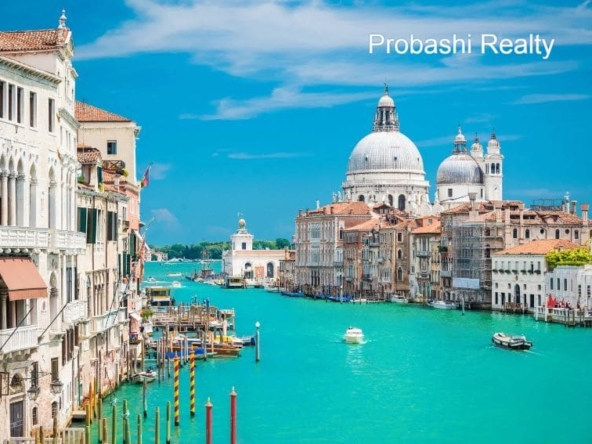Buying property in Italy as a foreigner is a popular choice due to its rich history, stunning landscapes, and vibrant culture. Here’s everything you need to know:
-
Legal Framework:
- Italy allows foreigners to buy property without restrictions. Non-residents have the same property rights as Italian citizens.
-
Types of Property:
- Residential Property: This includes apartments, villas, townhouses, and rural homes (known as “casali”).
- Commercial Property: Hotels, restaurants, shops, offices, etc.
- Land: Agricultural land, building plots, etc.
-
Ownership Options:
- Freehold Ownership: Foreigners can own property outright in Italy.
- Leasehold Ownership: Leases are less common for residential property but are possible for commercial purposes.
-
Legal Process and Documentation:
- Preliminary Contract: Once a property is chosen, a preliminary contract (contratto preliminare) is usually signed, accompanied by a deposit (caparra confirmatoria), typically around 10% of the purchase price.
- Final Deed: The final step is the signing of the final deed (atto notarile) before a notary public. This completes the property transfer process, and the remaining balance is paid.
-
Legal Assistance:
- It’s highly recommended to engage an Italian lawyer (avvocato) or solicitor who specializes in real estate transactions. They can guide you through the process, review contracts, and ensure all legal requirements are met.
-
Financing:
- Foreigners can access financing from Italian banks to purchase property. However, the terms may differ for non-residents, and a significant down payment may be required.
-
Taxation:
- Property Transfer Tax (Imposta di Registro): This tax is paid by the buyer upon property acquisition and varies depending on the property’s value and location.
- Value Added Tax (IVA): VAT applies to the sale of new properties and certain types of commercial property. The rate is typically 4% to 22%.
- Annual Property Tax (Imposta Municipale Unica, IMU): IMU is an annual tax paid by property owners, calculated based on the property’s value and location.
-
Residency and Visa Requirements:
- Purchasing property in Italy does not automatically grant residency or citizenship. However, there are various residency options available for non-EU/EEA citizens, such as the Elective Residence Visa, which allows individuals to reside in Italy without employment or business activities.
-
Local Regulations:
- It’s essential to familiarize yourself with local regulations, zoning laws, and planning permissions, especially if you plan to renovate or develop the property.
-
Real Estate Agents:
- Working with a reputable real estate agent (agente immobiliare) can simplify the property search process, provide valuable local insights, and assist with negotiations.
By considering these factors and seeking professional advice, foreign buyers can navigate the process of purchasing property in Italy smoothly and enjoy their investment in this culturally rich country.



